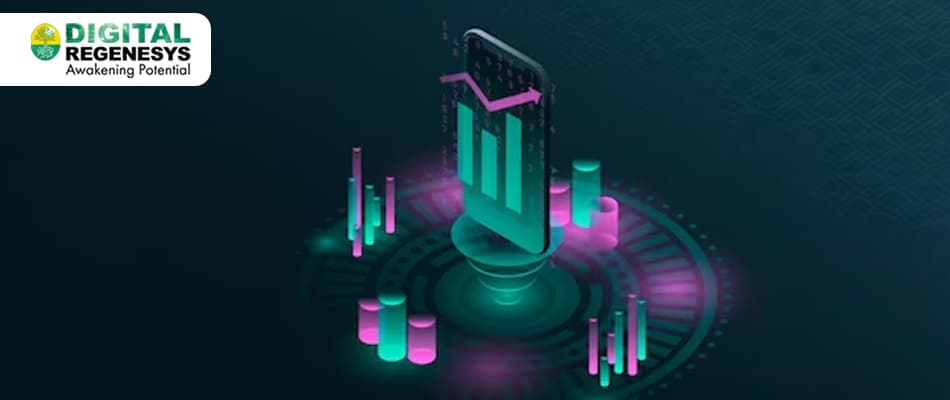Why Is It Important To Understand The Eligibility Criteria For Data Science Courses?
In the dynamic landscape of data science, where the demand for skilled professionals continues to surge, understanding the eligibility criteria for data science courses is a pivotal first step toward a rewarding career.
Aspiring data scientists and professionals seeking to upskill are presented with many courses and programmes, each tailored to diverse educational backgrounds and experiences.
Acknowledging and comprehending the eligibility requirements becomes paramount, serving as a compass that guides individuals toward the most suitable and enriching educational pathways.
In this article, let us explore the importance of understanding eligibility criteria for data science courses, explaining how it paves the way for a more informed and strategic approach to professional development.
Table Of Contents:
- What are Data Science Courses?
- What are the Eligibility Criteria for Data Science Courses?
- Why is Understanding the Eligibility Criteria for Data Science Courses Crucial?
- Conclusion.
- Frequently Asked Questions.
What are Data Science Courses?
Data science is an interdisciplinary field that involves extracting insights and knowledge from structured and unstructured data.
Data science courses focus on equipping individuals with the knowledge and skills needed to work in data science. These courses cover various topics, including statistical analysis, machine learning, data visualisation, and programming, to prepare individuals for roles where they can analyse and interpret data to inform decision-making. These courses are suitable for individuals seeking to enter the field of data science or professionals looking to enhance their skills and stay current with industry trends.
What is the Eligibility Criteria for Data Science Courses?
The eligibility criteria for data science courses can vary depending on the specific course, institution, and programme level (e.g., beginner, intermediate, advanced).
However, here are some standard eligibility criteria that are often associated with data science courses:
Educational Background
Many data science courses require participants to have a minimum educational background, such as a bachelor’s degree in a related field. Standard fields include computer science, statistics, mathematics, engineering, or a quantitative discipline.
Programming Proficiency
Proficiency in programming languages is a common requirement. Courses may specify languages such as Python or R. Participants are expected to have a basic understanding of programming concepts and the ability to write and understand code.
Mathematics and Statistics Skills
Data science involves complex mathematical and statistical concepts. Eligibility criteria often include a background in mathematics, including topics like linear algebra, calculus, and statistics. Some courses may require a certain level of proficiency in these areas.
Computer Science Fundamentals
A foundational understanding of computer science concepts, algorithms, and data structures may be required. This ensures that participants can effectively work with and manipulate data using computational tools.
Database and SQL Knowledge
Proficiency in working with databases and SQL (Structured Query Language) is often essential for data science. Data science courses may require participants to have basic knowledge of database management systems and the ability to write SQL queries.
Data Analysis and Visualisation Skills
Data science courses may expect participants to have fundamental data analysis and visualisation skills. This includes understanding how to explore and interpret data and creating visualisations to communicate findings effectively.
Machine Learning Fundamentals (for Advanced Courses)
Advanced data science courses, especially those focused on machine learning, may have additional prerequisites. Participants may be required to have a solid understanding of machine learning concepts, algorithms, and techniques.
Work Experience (for Professional Courses)
Some professional or executive-level data science courses may have eligibility criteria related to work experience. This could include a minimum number of years working in a relevant field or a specific role within an organisation.
Prerequisites for Specific Tools or Technologies
Courses that focus on specific tools or technologies, such as TensorFlow or Apache Spark, may have prerequisites related to familiarity with these tools. Participants may be required to have prior experience or knowledge in using specific data science tools.
Thus, it is essential to carefully review the eligibility criteria provided by the specific institution or platform offering the data science course. Additionally, individuals interested in pursuing data science courses should assess their skills and background to ensure they meet the requirements and are adequately prepared for the course level they plan to undertake.
Why is Understanding the Eligibility Criteria for Data Science Courses Crucial?
Understanding the eligibility criteria for data science courses is crucial for several reasons:
Targeted Skill Development
Data science courses often have specific prerequisites related to mathematical, statistical, and programming skills. Understanding these criteria helps individuals assess their readiness and identify areas for skill development before enrolling.
Optimal Learning Experience
Meeting the eligibility criteria ensures that participants have the foundational knowledge required to comprehend advanced concepts in data science. This contributes to an optimal learning experience, preventing gaps in understanding and facilitating smoother progression through the course content.
Successful Course Completion
Meeting eligibility requirements increases the likelihood of completing the data science course. Individuals with the necessary background are better equipped to handle the coursework, assignments, and projects, leading to a more fulfilling learning journey.
Alignment with Career Goals
Understanding eligibility criteria helps individuals align their career goals with the course objectives. For instance, if a specific course focuses on machine learning, having a prerequisite understanding of programming and statistics ensures that participants are prepared for the advanced machine learning concepts covered.
Efficient Use of Resources
Knowing the eligibility criteria prevents individuals from investing time and resources in a course they may need to be adequately prepared for. This information allows prospective learners to choose the most suitable courses based on their current skill set.
Therefore, understanding the eligibility criteria for data science courses is essential for tailoring one’s educational path, ensuring a successful learning experience, and aligning with personal career goals and industry expectations. It sets the foundation for a meaningful and rewarding journey into data science.

Conclusion
The significance of comprehending the eligibility criteria for data science courses cannot be overstated in the search for a successful and fulfilling career in this burgeoning field.
By understanding these criteria, individuals can align their educational pursuits with their current skill set, ensuring a seamless transition into the intricate world of data science. Thus, it facilitates a realistic assessment of one’s readiness for advanced coursework, fostering a learning environment where participants can thrive and contribute meaningfully.
As the data science landscape evolves, the clarity provided by eligibility criteria becomes essential, guiding individuals toward courses that match their qualifications and inspire a passion for continuous learning and innovation. Therefore, thoughtful consideration of eligibility criteria is a foundational step toward a future characterised by expertise, adaptability, and professional success for those embarking on the data science journey.
Digital Regenesys, a leading Ed-Tech learning platform, offers online courses across various digital domains. Digital Regenesys Data science online course is offered in three categories:
- Basic Data Science
- Advanced-Data Science
- Applied Data Science.
Enrol now at Digital Regenesys online courses to upskill and learn the real-world application of Data Science taught by industry experts.
FAQs – Frequently Asked Questions: Why Is It Important To Understand The Eligibility Criteria For Data Science Courses?
Can a Data Science Course be pursued online?
Answer: Yes. Many institutions offer online Data Science Courses, allowing learners to study at their own pace and from anywhere in the world.
Click here to explore Digital Regenesys Online Data Science Courses.
Why do data science courses have eligibility criteria?
Answer: Eligibility criteria are established to ensure participants have the foundational knowledge and skills to succeed in the course. They help maintain the course’s integrity and effectiveness.
How can understanding eligibility criteria benefit aspiring data scientists?
Answer: Understanding eligibility criteria allows individuals to assess their readiness for the course, ensuring they have the necessary background and prerequisites. It helps in making informed decisions about course selection.
What are the standard eligibility requirements for data science courses?
Answer: Common requirements include a background in mathematics or statistics, programming skills (often in languages like Python or R), and a basic understanding of data analysis concepts. Some courses may also specify educational qualifications or work experience.
Can professionals from non-technical backgrounds pursue data science courses?
Answer: Yes, some courses are designed for individuals with non-technical backgrounds. However, understanding eligibility criteria helps non-technical professionals identify courses that provide foundational technical skills while accommodating their existing expertise.














